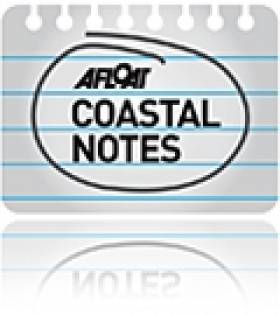Displaying items by tag: slipway study
Coastal Harbours Benefit from Infrastructure Funding
Malahide is one of over a dozen harbours around the coast to benefit from an announcement by Sean Connick TD, Minister of State at the Department of Agriculture, Fisheries and Food today that funding has been approved for harbour development projects in Local Authority owned harbours under the Fishery Harbour and Coastal Infrastructure Development Programme 2010.
Funding has been approved for projects that have been identified as priorities by each of the five Local Authorities listed below. Up to 75% of the cost of an approved project (subject to the maximum figure approved) will be available for each project with the Local Authority providing the balance. The project must be completed and funding drawn down before the end of the current calendar year. The projects are located in harbours around our coastline that are in Local Authority ownership.
Minister Connick said “The Local Authority owned fishing harbours supplement and underpin the activities undertaken in our Department of Agriculture, Fisheries and Food owned Fishery Harbour Centres. These harbours are of great importance to the fishing and aquaculture industries and provide much needed employment and support for economic activity in our coastal communities. I am delighted to be able to announce the provision of this funding to enhance and develop these facilities”.
The following is a list of the Local Authorities that have been approved funding:
|
Local Authority |
Approved Funding |
||
|
FINGAL COUNTY COUNCIL |
|||
|
Malahide - Repair to slipway |
€55,875 |
||
|
SLIGO COUNTY COUNCIL |
|||
|
Mullaghmore Harbour - Dredging of harbour |
€90,000 |
||
|
CORK COUNTY COUNCIL |
|||
|
Ballycotton - Breakwater Emergency works |
€225,000 |
||
|
WEXFORD COUNTY COUNCIL |
|||
|
Fethard harbour 1 - Fishing harbour and slipway study |
€18,750 |
||
|
Fethard Harbour 2 - Fishing harbour and slipway |
€7,500 |
||
|
Kilmore Quay Harbour - Provide a new laydown area at the end of West Pier |
€54,750 |
||
|
Courtown Harbour 1 - Health & Safety improvements |
€18,750 |
||
|
Duncannon & Hook Peninsula Piers - New CCTV system & Harbour Repairs |
€56,250 |
||
|
WEST CORK COUNTY COUNCIL |
|||
|
Castletownbere - Bank Harbour |
€18,422 |
||
|
Bantry- Doneen Pier |
€23,288 |
||
|
Schull - Lahertanavally Pier |
€24,375 |
||
|
Schull - Ballycummisk Pier |
€19,916 |
||
|
Castletownbere - Trafrask Pier |
€18,422 |
||
|
Western Division - Safety Works |
€46,369 |
||
|
Bantry Pier - Public Toilets |
€30,000 |
||
|
|
|
|
|
|
|
|
Total Estimated Cost |
€707,667 |






























































